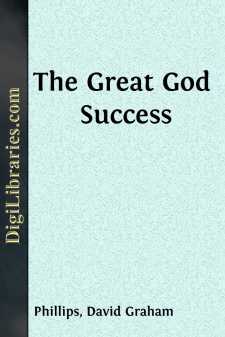Categories
- Antiques & Collectibles 13
- Architecture 36
- Art 48
- Bibles 22
- Biography & Autobiography 813
- Body, Mind & Spirit 142
- Business & Economics 28
- Children's Books 15
- Children's Fiction 12
- Computers 4
- Cooking 94
- Crafts & Hobbies 4
- Drama 346
- Education 46
- Family & Relationships 57
- Fiction 11829
- Games 19
- Gardening 17
- Health & Fitness 34
- History 1377
- House & Home 1
- Humor 147
- Juvenile Fiction 1873
- Juvenile Nonfiction 202
- Language Arts & Disciplines 88
- Law 16
- Literary Collections 686
- Literary Criticism 179
- Mathematics 13
- Medical 41
- Music 40
- Nature 179
- Non-Classifiable 1768
- Performing Arts 7
- Periodicals 1453
- Philosophy 64
- Photography 2
- Poetry 896
- Political Science 203
- Psychology 42
- Reference 154
- Religion 513
- Science 126
- Self-Help 84
- Social Science 81
- Sports & Recreation 34
- Study Aids 3
- Technology & Engineering 59
- Transportation 23
- Travel 463
- True Crime 29
Susan Lenox: Her Fall and Rise
Description:
Excerpt
Even now I cannot realize that he is dead, and often in the city streets—on Fifth Avenue in particular—I find myself glancing ahead for a glimpse of the tall, boyish, familiar figure—experience once again a flash of the old happy expectancy.
I have lived in many lands, and have known men. I never knew a finer man than Graham Phillips.
His were the clearest, bluest, most honest eyes I ever saw—eyes that scorned untruth—eyes that penetrated all sham.
In repose his handsome features were a trifle stern—and the magic of his smile was the more wonderful—such a sunny, youthful, engaging smile.
His mere presence in a room was exhilarating. It seemed to freshen the very air with a keen sweetness almost pungent.
He was tall, spare, leisurely, iron-strong; yet figure, features and bearing were delightfully boyish.
Men liked him, women liked him when he liked them.
He was the most honest man I ever knew, clean in mind, clean-cut in body, a little over-serious perhaps, except when among intimates; a little prone to hoist the burdens of the world on his young shoulders.
His was a knightly mind; a paladin character. But he could unbend, and the memory of such hours with him—hours that can never be again—hurts more keenly than the memory of calmer and more sober moments.
We agreed in many matters, he and I; in many we differed. To me it was a greater honor to differ in opinion with such a man than to find an entire synod of my own mind.
Because—and of course this is the opinion of one man and worth no more than that—I have always thought that Graham Phillips was head and shoulders above us all in his profession.
He was to have been really great. He is—by his last book,
"Susan Lenox."
Not that, when he sometimes discussed the writing of it with me, I was in sympathy with it. I was not. We always were truthful to each other.
But when a giant molds a lump of clay into tremendous masses, lesser men become confused by the huge contours, the vast distances, the terrific spaces, the majestic scope of the ensemble. So I. But he went on about his business.
I do not know what the public may think of "Susan Lenox." I scarcely know what I think.
It is a terrible book—terrible and true and beautiful.
Under the depths there are unspeakable things that writhe. His plumb-line touches them and they squirm. He bends his head from the clouds to do it. Is it worth doing? I don't know.
But this I do know—that within the range of all fiction of all lands and of all times no character has so overwhelmed me as the character of Susan Lenox.
She is as real as life and as unreal. She is Life. Hers was the concentrated nobility of Heaven and Hell. And the divinity of the one and the tragedy of the other. For she had known both—this girl—the most pathetic, the most human, the most honest character ever drawn by an American writer.
In the presence of his last work, so overwhelming, so stupendous, we lesser men are left at a loss. Its magnitude demands the perspective that time only can lend it. Its dignity and austerity and its pitiless truth impose upon us that honest and intelligent silence which even the quickest minds concede is necessary before an honest verdict.
Truth was his goddess; he wrought honestly and only for her....











